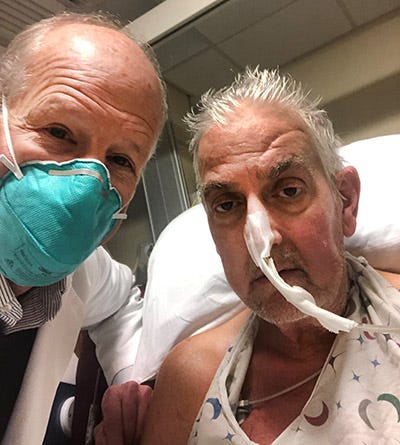Groundbreaking Pig Heart Transplant: A New Era in Medicine
Written on
Chapter 1: The Historic Transplant
On January 7, 2022, a pioneering medical team in Maryland, USA, achieved a remarkable feat by successfully transplanting a genetically altered pig’s heart into a human patient. This groundbreaking operation involved David Bennett, who had been hospitalized due to a severe heart arrhythmia. For six weeks, he relied on a heart-lung bypass machine to sustain his life.
After evaluating his medical history, several transplant centers, including the one in Maryland, found him unsuitable for either a traditional heart transplant or an artificial heart pump. Dr. Bartley Griffith, leading the cardiac transplant program, presented an unconventional solution to Bennett: "While we can’t provide you with a human heart, perhaps we can utilize one from a pig."
At fifty-seven years old, David Bennett became the first individual to receive a heart from a genetically modified pig, marking a significant milestone in the field of xenotransplantation, where organs are transplanted from non-human animals to humans. The donor pig was created by Revivicor, a company specializing in regenerative medicine. Pigs are ideal candidates for such transplants due to their rapid growth to human-size organs, although there are risks such as potential infections from pig endogenous retroviruses. The donor pig had undergone ten genetic modifications to reduce the chances of organ rejection, including deactivating a growth gene to prevent the heart from growing excessively and inserting human genes to humanize the organ.
The procedure received emergency authorization from the US Food and Drug Administration on New Year’s Eve, deemed the only remaining option for Bennett. A week later, Dr. Griffith and his team conducted the eight-hour operation, which concluded with the new heart functioning independently.
Before his surgery, Bennett expressed his determination: “It was either die or do this transplant. I want to live. I know it’s a shot in the dark, but it’s my last choice.” As of January 10, just three days post-surgery, Bennett was alive and his new heart was beating effectively. The initial forty-eight hours post-operation are critical, but Bennett exhibited no signs of rejection and continued to be closely monitored while on a bypass, a standard procedure for heart transplant patients.

Chapter 2: Historical Context of Xenotransplantation
The field of xenotransplantation has faced numerous challenges over the years as researchers strive to navigate the complexities of the immune system. A notable case occurred in 1984 when Baby Fae received a baboon heart after being diagnosed with a life-threatening heart condition. Despite surviving for twenty-one days post-transplant—longer than any previous recipient of a simian heart—she ultimately succumbed less than a month later. This incident led to a decline in xenotransplantation research, but the persistent organ shortage kept the interest alive.
Currently, over 100,000 individuals are on the US national transplant waiting list, despite the country's high organ donation rates. Meanwhile, the Eurotransplant community has over 13,000 individuals awaiting organs. This staggering demand puts immense pressure on the medical community to discover viable alternatives to human organ donors.
Various alternatives are being explored, including in vitro organ engineering, an ethically considerate approach. Nevertheless, Bennett's successful procedure represents a significant advancement in xenotransplantation, positioning it as a potential solution for the countless patients on waiting lists globally who, like David Bennett, urgently need organ transplants.
This video titled "The World's First Pig Heart to Human Xenotransplant" from the University of Maryland Medicine discusses the groundbreaking surgery, providing insights into the procedure and its implications for the future of organ transplantation.
In this video, "Pig Heart Transplant Recipient Lawrence Faucette Expresses Optimism Prior to His Historic Surgery," Lawrence Faucette shares his thoughts and feelings leading up to the historic procedure, highlighting the emotional journey of transplant patients.
P.S. An update as of March 12: David Bennett passed away on March 8, two months following the transplant, at the age of 58. The cause of his death is still under investigation.